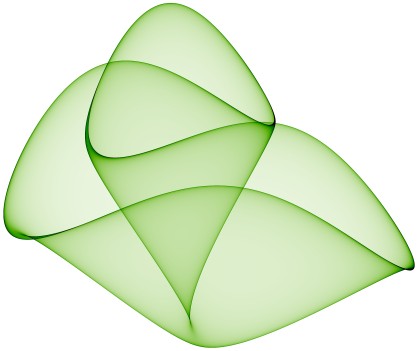This is a tale I originally wrote in 2011. The metaphor at its core stems from my father, when we talked about my pedophilia. It is part of the appendix of my book “Für ein Kinderlachen” under the title “Die Rosenmetapher” (the rose-metaphor). For several years it served as the introduction to the section about child abuse and media that depict sexual exploitation at the old version of Fate and Challenge (Now at archiv.suh-ev.de). At the start of writing that story there was the question what humans like most about flowers. They mainly admire their beautiful blossoms, don't they? What would flowers be without blossoms! But what are blossoms actually to the plant? It may feel weird to admit it so bluntly but, what we admire most, the blossoms, are their genitals.
The Rose Garden
Once upon a time there was a man who bred roses. He had a large garden where people flocked to admire his roses when they were in bloom. They also admired the hard work that this man had put into his plants—and continued to put in every year.
There was also a man among the regular visitors to his garden who didn't come when the roses were in bloom. No, he came when they were still budding. He came a few times each year to inspect the growth of the buds. He found blooming roses just as beautiful, but he was especially fascinated by how the small, knobbly buds could grow into such large, delicate flowers. He came every year and couldn't get enough of the little green buds and the way they unfolded.
Then one year, curiosity drove him to see how the buds managed to grow so many delicate petals in such small round spindles without knotting or growing together. He sat in the garden and pulled open a few buds to see what they looked like on the inside. And he was fascinated. He took photographs and made sketches and tried to understand what was going on inside the buds as they grew.
When flowering time came, he was long gone. He knew roses and how they bloomed. You could see them everywhere. But nobody seemed to be interested in the buds and their development. Around this time, the owner of the garden called him in. He came and the rose grower asked him for a tour of the garden. They had a lively conversation and he told him about all the work it took to make roses flourish so that one day they would bloom so beautifully. Then he said: “Come on, I want to show you something.”
As he was led through the garden, he hardly recognized any part of the area. Everything looked way different now compared to when he usually visited.
“Do you notice anything?” he asked him abruptly.
“No,” said the second man, “What am I supposed to notice?”
“Just look closely! Don't you notice something about this and that flower?”
He realized that the flowers the rose farmer showed him were indeed different from all the other roses in the garden. They did not have the same grace and beauty of the other flowers. No, some were actually misshapen and their petals were partly dead and black in color.
The man who had inspected the buds felt sorry for these flowers. What had happened, he asked himself. “What's wrong with them? Have they been affected by a late frost?”
“No,” the owner of the rose garden replied, ”these are the flowers whose buds you experimented on a few months ago.”
©2011 Max Weber (English Translation: 2025)

My father once told me this comparison after I came out and it really touched me and gave me a lot to think about. He compared someone who approaches children on a sexual level and abuses them to opening the buds of flowers and exploring them. Certainly an interesting and fascinating thing, driven by curiosity and without malicious intent. What are buds but the unfinished genitals of flowers? But what effect would such completely innocent curiosity have on the blossoms?
Sex drive also works partly through curiosity. Not without reason is there a rhyme in German: “If it weren't for curiosity, the stroller would remain empty.” And when it comes to plants, we allow ourselves to play, and even a destructive curiosity. We also cut flowers and put them in vases. But if you then take the plunge, abandon the allegory and place children instead of flowers, which is what we are actually talking about here… Suddenly all these thoughts and metaphors become quite disturbing, don't they?
For instance, what do parents who use their children for self-expression do other than cut them off like a flower and put them in a vase from which they cannot escape! Are children meant to be cut off and put in vases to look pretty? Or is it permissible to make children the object of one's curiosity?—This translation into reality makes me personally feel quite uneasy, sick even: they should blossom, they should be allowed to be as free and carefree as possible! Who would ever want to risk such damage—out of curiosity or lust?
I put this parable into text form in 2011 and translated it into English in 2014 and again in 2025 (with help of DeepL). Also this story has also been the inspiration behind the stylized rose in the logo of Fate and Challenge. In 2025 Bouře also translated it into Czech for publication at ČEPEK.

 English
English
 Deutsch
Deutsch